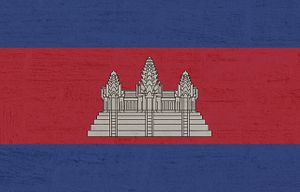Just days after its snap amendment of the constitution over an errant line in an international newspaper report, the Cambodian government is doing everything it can to reinforce its reputation for hair-trigger overreactions. Earlier this week, the country’s long-serving Prime Minister Hun Sen ordered the authorities to track down the owner of a Facebook account, believed to be in Thailand, who posted a poem with “violent” words on the prime minister’s Facebook page.
The poem in question was posted on October 9 by a Facebook user nicknamed Kranhoung Preylang and bore a title, “Hun Sen is a Traitor,” that left little doubt as to his political inclinations. In particular, the poem criticized the Cambodian leader’s recent move to amend the country’s constitution, which he said was “destroying the country.”
In a message posted on his own Facebook page, Hun Sen compared Kranhoung Preylang to the murderous Khmer Rouge, citing the role that his government played in the final defeat of their insurgency and the restoration of peace in the 1990s. “Please, compatriots, read this article, which is full of violence. This is why I have to eliminate extremist theories and activities at all costs,” the Cambodian leader wrote according to a translation by the government-aligned Khmer Times. He added, “Now there are extremist rebels left that need to be eliminated for peace to be maintained. Hopefully the police will find this person.”
According to the Khmer Times report, Hun Sen also posted on Facebook a document claiming that the holder of the account is 35-year-old Voeun Veasna, a member of the disbanded Cambodia National Rescue Party (CNRP).
The posting came after Hun Sen ordered officials to pass a constitutional amendment barring those with dual citizenship from holding the country’s four most senior political posts. The move was a reflexive response to an erroneous report in The Guardian (later corrected), which claimed that Hun Sen had acquired Cypriot citizenship, as is alleged of several members of his inner circle.
While designed to head off rumors that Hun Sen had acquired Cypriot citizenship, the constitutional amendment, which was approved by the Council of Ministers earlier this week, would also block these posts from being held by the many members of the opposition who hold dual citizenship.
The prime minister’s order is just the latest in an ongoing campaign of prosecution and persecution against even the most minor stirring of opposition to the ruling Cambodian People’s Party (CPP). Over the past five years, the CPP government has effectively abolished all sources of formal political opposition.
In late 2017, it disbanded the popular CNRP, not long after arresting one of its leaders for treason and forcing another into exile, along with most of the party’s senior leadership. It subsequently absorbed the thousands of local government positions held by the CNRP, and went on to win all 125 parliamentary seats at national elections in July 2018. The authorities also cowed the independent press and forced much of Cambodian civil society into a cautious silence.
Yet despite its seeming security and strength, the government continues to lash out at any hint of opposition. Recent prosecutions have targeted the severely autistic 16-year-old son of a senior opposition politician who was accused of sending an insulting Telegram message as well as the breakout rapper Kea Sokun, some of whose tracks riffed on the perennially twinned themes of state corruption and Hun Sen’s supposed supplicancy to Vietnam.
The government has arrested and jailed environmental activists who have drawn attention to illegal logging and the filling in of lakes in the capital, Phnom Penh. It has detained dozens of members of the CNRP on a range of bogus or inflated charges, as well as ordinary citizens who have expressed critical views of the government and its leaders on social media.
These recent, almost comically excessive moves hint at the paranoia of a CPP leadership that came of age in, and was deeply molded by, a context of grinding civil war, but that now lacks any truly threatening target on which to unleash its paranoid impulses.

































